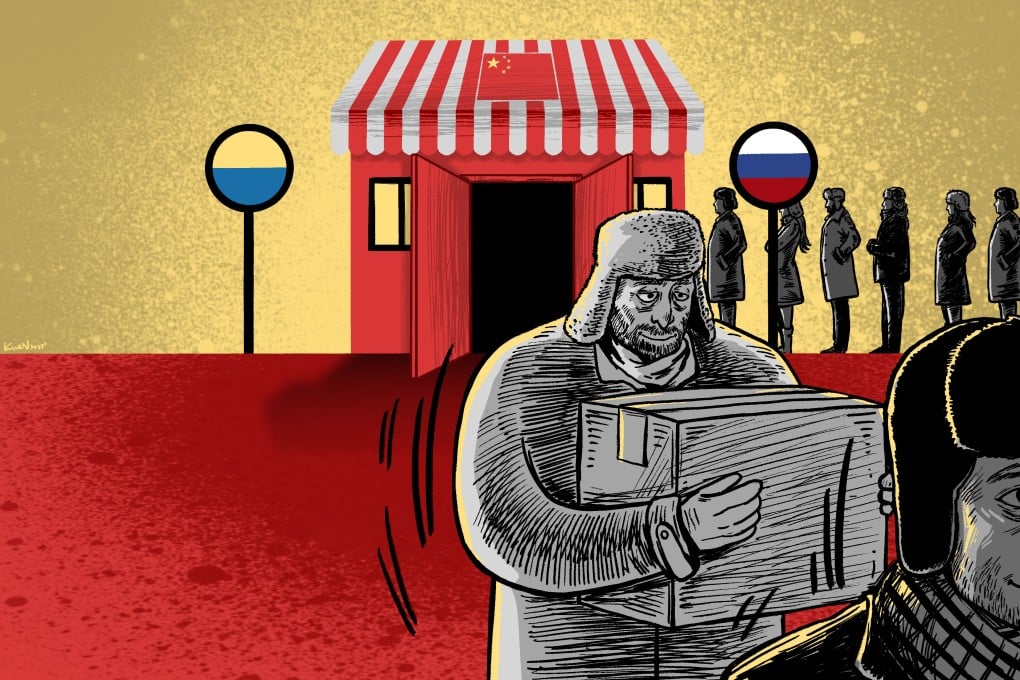Ukraine war, 1 year on: for Chinese businesses, perils and pitfalls as supply chains have changed
- A large business void in Russia, caused by Western brands shunning the country, makes the market as appealing as ever for Chinese sellers
- But some firms are finding new challenges to making inroads with both Russian and Ukrainian buyers, including fierce competition from other countries

Rick Wang knows it can get pretty cold in Russia. So, the sales manager for a down-jacket manufacturer in the eastern Chinese province of Zhejiang had high hopes when he paid a one-week visit to his Russian clients after the recent Lunar New Year holiday, looking to sell some coats.
But the trip earlier this month didn’t yield the results he was hoping for. He did get some face time with five current clients, and he met with two potential ones, but no one placed any new orders.
Instead, he said, many Russian firms have been increasingly sourcing goods from his Vietnamese competitors.
“We came a bit late, as big orders had been taken away by Vietnam so we could only take smaller ones,” he said. “We want big orders, while clients ask for lower prices.”
Back in 2014, when Russia invaded and annexed Crimea from Ukraine, Wang’s business began shifting to Italy, leaving Russia to account for only a small share of his international market.
